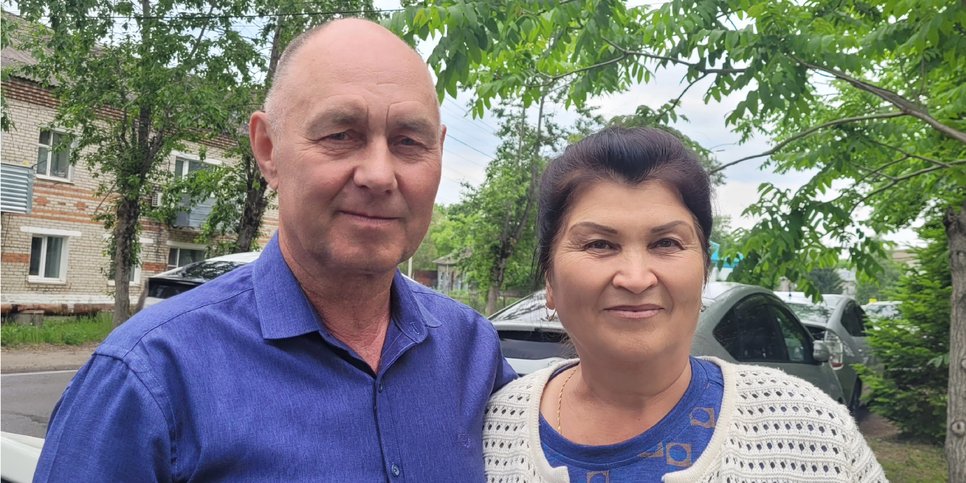Aleksandr Shutov with his wife, Roza, on the day of the verdict. June 2023
Aleksandr Shutov with his wife, Roza, on the day of the verdict. June 2023
In the Khabarovsk Territory, a Court Found 70-Year-Old Aleksandr Shutov Guilty of Extremism for Reading the Bible With Friends
Khabarovsk TerritoryOn June 9, 2023, the Lazo District Court of the Khabarovsk Territory found Aleksandr Shutov, 70, guilty of extremism. Judge Yevgeniya Stetsa sentenced him to 2 years and 5 months of suspended sentence with a probationary period of 2 years and restriction of liberty for 6 months for participation in the services of Jehovah's Witnesses. The verdict has not entered into force.
“I view this criminal case as repression,” Aleksandr said in court. “The investigative agency groundlessly and unreasonably replaced the concept of exercising the right of citizens to freedom of religion, which includes a person's right to read the Bible and discuss it with friends, with the concept of carrying out extremist activities. ... My only intention was to worship God; doing so is typical for the religion I profess. And the motive of my actions was love for God and neighbor.” The believer has the right to appeal the verdict.
The search of the Shutov family's home took place at the end of July 2021. The criminal case was conducted by FSB Investigator S. V. Nemtsev and by the head of the Vyazemsky Department of the FSB, Aleksey Svetachev. They also initiated the prosecution of other persons who are Jehovah's Witnesses in Vyazemskoye: Yen Sen Lee, Yegor Baranov, and Sergey Kuznetsov. Yegor and Sergey received suspended sentences of four and a half years and two and a half years respectively, and Yen Sen died while under investigation. The FSB officers used against them and Shutov the testimony of a woman who slandered the believers under pressure from the security forces—according to her, she was threatened with deprivation of parental rights.
Eric Patterson, executive vice president of the Religious Liberty Institute, called Russia's ongoing persecution of Jehovah's Witnesses unfair and ridiculous, saying, "It contributes to a climate of fear and social stagnation."

